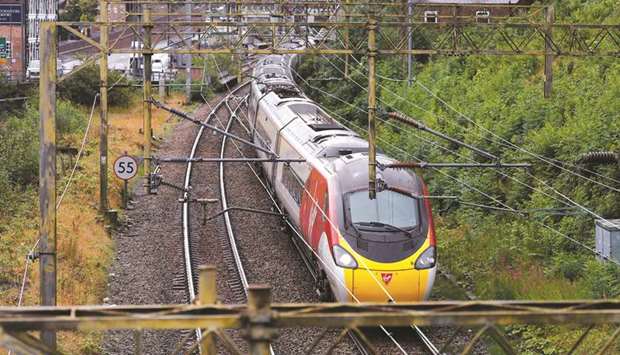Rail fares will rise by a further 2.8% in January, it has been confirmed, amid warnings from campaign groups and unions that ever higher train fares risk driving passengers off the railway.
After a decade when fares have risen at double the rate of wages, the latest increase, set by the July RPI inflation figure published yesterday by the Office for National Statistics, will add more than £100 to many annual season tickets.
It will mean that the overall cost of train travel has gone up by 46% since 2009, while wages have only grown by 23%, according to TUC analysis of ONS figures.
Frances O’Grady, the TUC general secretary, said: “The last thing UK commuters need is another hefty fare increase. We’re already paying the highest ticket prices in Europe to travel on overcrowded and understaffed trains.”
The TUC said private train operators paid out £200mn in dividends to their shareholders in 2017-18 and received £3.8bn in public subsidy.
O’Grady said: “It’s time to take the railways back into public hands. Every single penny from every single fare should be invested into our railways.”
The more commonly used measure of inflation, the consumer prices index (CPI), was only 2.1%.
The previous transport secretary, Chris Grayling, had discussed abandoning the RPI measure of inflation and raising fares in line with CPI.
The Campaign for Better Transport called for the government to commit to the change, saying: “These exorbitant increases will cost commuters dearly from January.”
Labour said passengers were “paying more for less” and promised to take the railway back into state ownership as franchises expired.
Andy McDonald, the shadow transport secretary, said: “It is indefensible and intolerable that many fares may, once again, rise faster than inflation.”
But the government defended the planned increase.
The rail minister, Chris Heaton-Harris, said: “It’s tempting to suggest fares should never rise. However, the truth is that if we stop investing in our railway then we will never see it improved.”
The government has tried to turn the spotlight from rail fares by announcing the award of the West Coast Partnership to a First Group-led consortium with Trenitalia, which will replace Virgin from December.
The contract award, which could include the introduction of HS2 high-speed train services from 2026 if the project survives, remains controversial, with the incumbent Stagecoach-Virgin suing the government after being barred from bidding for the franchise again.
Bruce Williamson, from the campaign group Railfuture, warned: “It might be that we’ve now reached the point where we cannot simply put fares up and expect passengers to take the hit. They will just give up and refuse to pay. They will either find another job or another form of transport.”
The number of journeys made by commuters using season tickets has dropped by 12.5% in three years, from 712mn in 2015-16 to 625mn this year.
The 2.8% figure will be the maximum rise to regulated fares, which account for about half of all rail journeys, including season tickets on most commuter routes, off-peak returns on long-distance trains and anytime tickets around major cities.
A 2.8% increase would make a Leeds to Manchester annual season ticket £91 more expensive, at £3,363, and would add more than £117 to a Brighton to London or Edinburgh to Glasgow season ticket, both costing more than £4,200.
The Rail Delivery Group (RDG), which represents private train operators and Network Rail, said 98p in every £1 taken in fares was put back into running the railway.
Robert Nisbet, an RDG director, said: “No one wants to pay more to get to work but, by holding rises down to no more than inflation, government is ensuring that money from fares continues to cover almost all of the day-to-day costs of running rail services.”
News of the increase comes after a year in which the structure and functioning of the railways has been called into question.
Major commuter routes have largely recovered from the chaos of the 2018 summer timetable change, when there were thousands of cancellations and the railway recorded its worst punctuality performance in 18 years, but other problems have persisted.
Campaigners and unions staged protests yesterday against the fare increases at stations around Britain.

A Virgin Trains Mainline service from London to Manchester pulls out of the station in Macclesfield.
